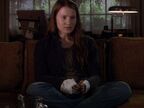In many fields, the news of sexual encounters occurs from time to time. In counseling, it is easy for both parties to form an intimate relationship, but once a deviant incident occurs, it is devastating to both parties.
Laura is in a rare state of contentment in counseling, every word she says is listened to by Paul, who together explore important events in her life, past and present. To be cared for, to be cared for (Paul offered to dress her), to feel unconditionally supported. For this kind of generosity, Laura didn't know how to return it, so she had a transfer of passion, and even competed with her brother Bing for Paul's love. All this has caused great trouble in Laura's life, so that there are major mistakes in her work.
The emotions that arise in therapy are often directed towards the character rather than the therapist, yet Paul sees Laura's empathy and adoration as a charisma. Paul did this because his own sex life was unsatisfactory, and his wife's infidelity caused him to be lonely and unnecessary sexual contact. Clearly, Paul's use of the counseling scene as his means of gaining sexual contact was a serious mistake, both professionally and ethically.
Fortunately, Paul took the initiative to seek help from the supervisor and stopped counseling. In fact, Paul was not thinking about the client, but for his own satisfaction. If he had a relationship with Laura, he would suffer moral and worldly accusations, as well as a sense of shame and guilt in his heart.
In the end, Paul solved the client's erotic transfer problem very well.
Reference: Owen Yalong, "The Gift for the Psychologist"
View more about In Treatment reviews











